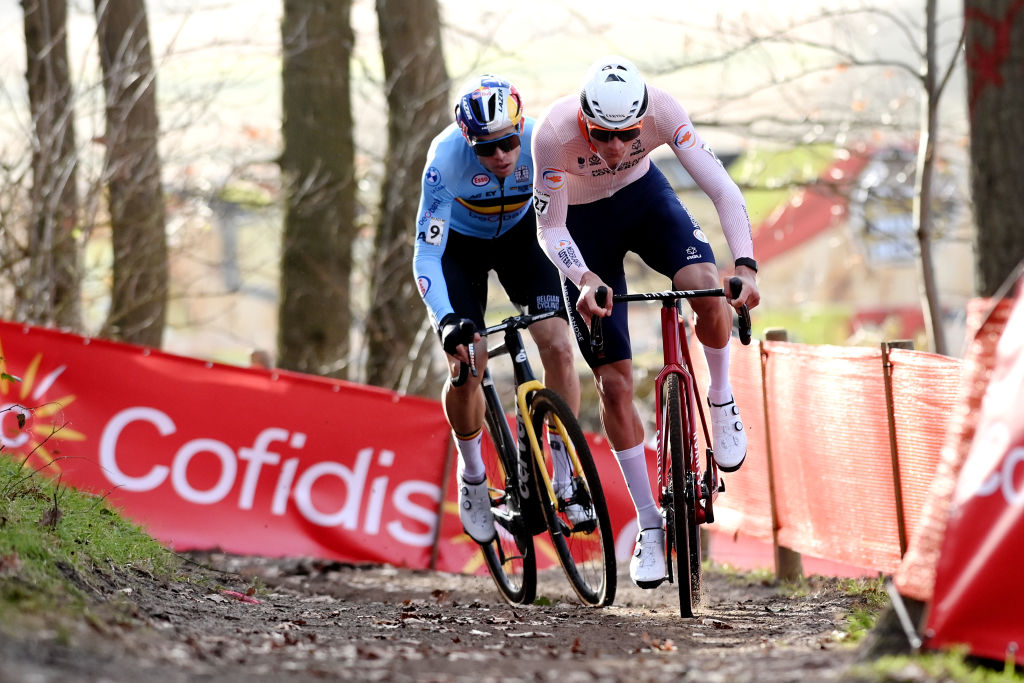The UCI Cyclocross World Championships in Hoogerheide last weekend proved that the sport still has a huge audience and ample appeal. The decade-long rivalry between Mathieu van der Poel and Wout van Aert reached its peak on Sunday in one of the most scintillating hours of sports television of the season.
But what happens when these superstars stop?
Flanders Classics CEO Tomas Van Den Spiegel, who organises the World Cup, wants to capitalize on the momentum from the success of Hoogerheide and secure the future of cyclocross.
In the Sporza podcast De Tribune, Van Den Spiegel discussed the sport’s strengths and limitations with VRT commentator José De Cauwer and described his vision of the future.
“Cyclo-cross has some advantages that road cycling does not have: it takes 1 hour, men and women are virtually equal, the riders are constantly riding laps which guarantees a lot of visibility for sponsors, and you have those stars.
“These are all things that the sport is already benefiting from, but also ensure that cyclocross is future-proof. Now, we have to be able to make a plan that gives the cross a future without Mathieu and Wout,” Van Den Spiegel said.
One point he made will be sure to raise the hackles of other cyclocross organisers who are already under pressure since the expansion of the World Cup to 14 races. Van Den Spiegel dared to suggest the traditional ‘kerstperiode’ races in December were counter-productive.
“The product becomes more successful when there is more scarcity and therefore more demand. Here [in Belgium] – especially during the Christmas period – we have an oversupply of ‘cross. That has worked well but is not productive for the future.
“We should take a big white sheet and start over from scratch. I would love to do that myself because I think we could shape [the calendar] much better.”
“I would also think it makes sense for the World Cup to be the basis of that new calendar. You fill out those 14 rounds and try to build a very good product and calendar around that.”
Less controversial were suggestions of somehow pairing cyclocross with the burgeoning gravel racing scene to create year-round interest.
“With the advent of gravel races, you might be able to create a new kind of cyclist who combines both components: cyclocross in winter and gravel in summer,” De Cauwer suggested.
“Why couldn’t every professional team have one or two cyclocross or gravel riders? In the juniors, you now have a world champion with Léo Bisiaux that you should…
Click Here to Read the Full Original Article at CyclingNews RSS Feed…

